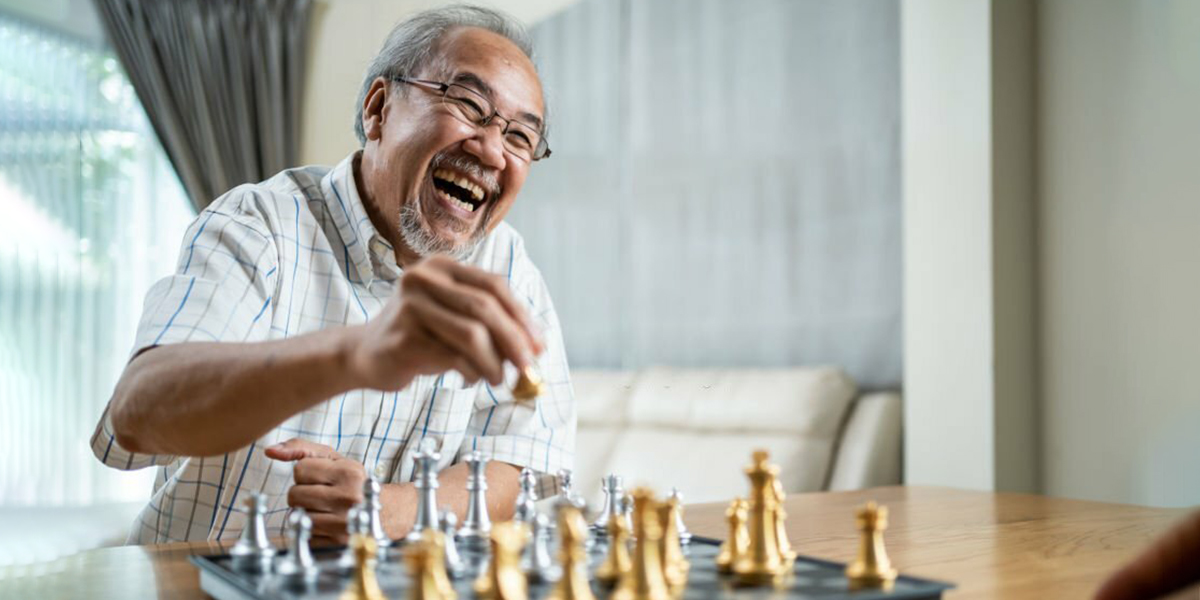Boost Your Brainpower: The Science Behind Seniors Who Never Stop Learning
The brain is the most complex structure in the human body and is surprisingly malleable. It has the capability to rewire and rebuild new cells. Tuning one’s brain is influenced by the individual’s behavior, activities, diet, and environment. The neuroplasticity property of the brain explains its ability to remold and refresh itself.
The hippocampus in the brain is the most active site for neurogenesis (formation of new neurons) and this region is responsible for learning and long-term memory.
But in most adults with the increase in age, the thinking and learning ability reaches a plateau and starts declining after 60 years of age. This is similar to the ‘summer slide’ concept in children. Interrupted learning after education and jobs or reduced learning opportunities along with age, may ignite changes in the brain structure and function leading to a decline in cognitive decline. We at Athulya Assisted Living understand the different perspectives of brain health in seniors and plug in several activities to keep their brains sharp and powerful. This blog will illuminate the different evidence-based strategies that will boost the brain power of seniors.
#1
Active Body = Active Brain
Physical exercise is a promising booster of brain health. Research has stated that it supports the brain's executive skills such as planning, organizing, and multitasking. Exercise augments the blood flow to the brain thereby increasing the supply of oxygen and nutrients to the neurons. A study revealed that exercising stimulates the production of brain-derived neurotrophic factor (BDNF) that fosters communication and growth of neurons. Our in-house physiotherapists help seniors stay active with regular one-on-one and group exercise sessions. These sessions also help uplift the seniors’ mood, physical health, and socializing skills.
#2
Smart food choices
Consuming a healthy diet that is rich in
omega-3 fatty acids, protein, antioxidants, minerals, and vitamins is good for
the brain. Foods like vegetables like greens, and broccoli, fruits like
oranges, and blueberries, fatty fish like salmon, trout, herring, tuna, and
sardines, eggs, almonds, pumpkin seeds, coffee, and dark chocolate are known to
be beneficial to boost brain power. The dietitians in our facilities
personalize the residents’ meal plans and plan a balanced diet that supplies
essential nutrients for the benefit of seniors.
#3
Workout for the brain
Brain exercises are composed of activities that challenge the memory, focus, and problem-solving skills of seniors. A study revealed that playing games and performing hobbies that work the brain helps turn down the risk of dementia and its forms that are very common among old adults. We conduct regular activities for seniors that work out their brains namely chess, ludo, puzzles, Jenga, ball games, coloring, drawing, painting, clay art, and many more. Research states that connecting puzzles releases dopamine is associated with happiness and stimulates concentration. Studies have found that playing chess in old age reduces the risk of dementia and Alzheimer’s disease. Crosswords are fantastic brain games that help with the elder’s association capabilities.
#4 Keep learning
Challenging the brain with mental exercises can help activate certain processes that help maintain individual brain cells and stimulate communication between cells. Pursuing a new hobby or learning new skills poses several benefits to seniors. Learning art, music, gardening, new languages, writing journals, reading books and volunteering are some of the activities that help stimulate and preserve brain connections and functionality. The residents at our facilities have learned as an ongoing process of their lives by participating in different activities conducted at the premises.
#5
Good Sleep
The amount of sleep one gets greatly influences their ability to function at their best. Poor sleep compromises memory, creativity, critical thinking skills, and problem-solving ability. Setting a regular sleep schedule, avoiding screen time at least an hour before bed, taking a shower, reading a book, or trying meditation before sleep aids seniors to sleep well.
#6
Share a laugh
Laughter holds medicinal properties to memory and the brain. Studies have revealed that laughing helps think broader and better, and activates creativity. Surrounding oneself in a jovial environment, spending time with friends, cracking jokes, and sharing a good laugh is a natural way to keep one’s brain active and healthy. Our residents have special friendships in the facility and enjoy spending time together.
#7
Social Interaction
Meeting people and spending time with them creates a space for new relationships and sharing of feelings. Relating to each other’s life journey and learning from other’s experiences is an excellent way to boost brain power. We provide our residents with the opportunity to interact with people of the same (fellow residents) and younger (caretakers, nurses, and therapists) generations where they enjoy sharing their stories.
Conclusion
The brain is an amazing organ that
surprisingly can perform so many functions and take up new challenges at all
ages. Apart from the tips shared above in this blog, there are a few more ways
to boost seniors’ brain power. Stepping out for some fresh air and sunlight,
listening to music, managing stress, meditation, and breathing techniques also
help keep the brain sharp and healthy.
Expressing one’s feelings and thoughts out loud is an important step towards building a sharp brain. Our psychologists work towards improving the seniors’ mental wellness. At Athulya Assisted Living our team members collaborate to cultivate happy and sound mental health for seniors and help boost their brain power. To learn more about us, visit our website Athulya Senior Care.
Information:
This blog is for informational purposes only and should not be considered as a
substitute for any treatment or diagnosis. Seek professional help in case of
any emergency. Athulya is not responsible for any consequences.
Related
links
2.
https://www.athulyaliving.com/blogs/mindfulness-activities-and-proper-care-for-seniors.php




Comments
Post a Comment